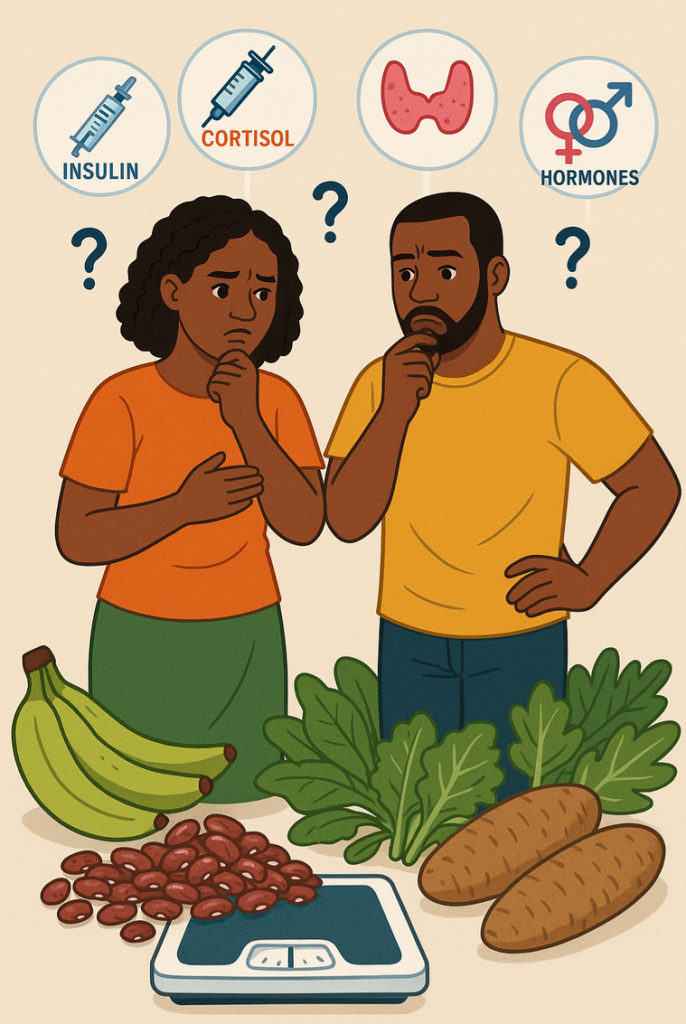Do you think weight gain is straightforward? Some think we can always explain weight gain using the framework of overeating and an inactive lifestyle. But this does not always hold. What if you find yourself rapidly and excessively gaining weight though your food intake has not increased?
Sometimes weight gain is due to hormonal causes. These hormonal fluctuations usually have more extensive effects on the body, with weight changes being just a sign. That’s why it’s important to know what hormones affect weight, how they do it, and what you can do about it. So stay with us.

Key Hormones That Affect Weight
Insulin
“Insulin? I thought that was a sugar hormone”, you ask. You’re correct. Insulin is a sugar hormone. But what does it actually do to sugar? It moves sugar from the blood into the cells for them to burn for energy. If the sugar is in excess, it will be converted to fat for storage and use later. If insulin is too much in the blood, you will therefore have excessive fat storage. Conditions where this can occur include type 2 diabetes and polycystic ovarian syndrome (PCOS).
Cortisol
Cortisol is a stress hormone. Its action in the body is similar to insulin’s. In situations where you’re exposed to prolonged stress and don’t manage it well, cortisol can predispose you to gain weight. More seriously, some disease conditions can lead to high cortisol levels. Cushing’s syndrome and overuse of steroids can cause this.
Thyroid Hormones
Thyroid hormones drive your metabolism—how your body burns energy. So if you have low thyroid levels, you will burn energy slower. This means you can gain weight faster even without eating more. This condition is called hypothyroidism.
Oestrogen/Testosterone
Yes, these sex hormones also influence weight because they affect how you look by determining where fat is deposited and how muscle grows in the body. Testosterone ensures more lean muscle mass in men. Low testosterone levels mean that a man may begin to have a higher body fat composition instead of muscle. Oestrogen drives metabolism in muscle cells in women. In menopause, low oestrogen levels may lead to easier weight gain.
How to Manage Hormone-Related Weight Gain
- Eat local whole foods – such as vegetables, unripe plantain, and beans. These foods raise your blood sugar more slowly. So if you have high insulin levels, as in type 2 diabetes, they help curb weight gain.
- Practise stress management – through relaxation, strong relationships, adequate sleep (7–8 hours daily), and light exercise.
- Avoid skipping meals or extreme dieting – These may trigger other complex hormonal or metabolic problems. Be gentle. Slow and steady wins the race.
- Check with a doctor – If your weight gain worries you or is accompanied by other symptoms, definitely see a doctor for a proper diagnosis and medical care.
Conclusion
Hormonal imbalance can quietly sabotage your weight—even when you’re trying to eat right and stay active. Understanding the signals your body sends and making thoughtful, balanced changes is your best path to long-term wellness.
Are you still interested in hormones? Learn how hormonal changes affect women’s health here!









